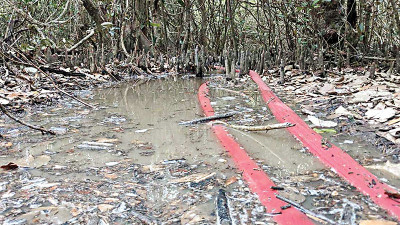The upcoming visits of the Emir of Qatar, Sheikh Tamim bin
Hamad al-Thani, to Bangladesh and Nepal should prioritize labor protections for
migrant workers, Human Rights Watch said on Monday.
Both are key countries for Qatar’s migrant workforce, which
makes up 88 percent of the country’s population. Al-Thani is expected to arrive
in Bangladesh on April 22, 2024, and in Nepal on April 24.
“It is important for Qatar, Bangladesh, and Nepal to go
beyond exchanging diplomatic pleasantries over their longstanding labor ties
and seize this moment to publicly commit to concrete, enforceable protections
that address the serious abuses that migrant workers in Qatar continue to
face,” said Michael Page, deputy Middle East and North Africa director at Human
Rights Watch. “The Qatari emir should not just meet heads of state, but also
visit dialysis centers filled with migrant worker returnees from Qatar and
speak with the families of workers who died in Qatar to see the grave
consequences of inadequate Qatari labor protections.”
Migrant workers from Bangladesh and Nepal have been
indispensable to Qatar’s economy, including in the preparation and delivery of
the 2022 World Cup. The Qatar-to-Nepal and Bangladesh routes that the Qatari
leader is taking are well-trodden, with thousands of workers making this
journey daily. As “guest workers” in a country that does not offer citizenship
to most foreigners, the expectation is that workers come to Qatar to work, earn
money, and, sooner or later, leave.
Qatar-based jobs have enabled migrant workers to send
remittances back home to their families, but many workers leave Qatar worse off
than before they migrated. They experience abuses that include wage theft,
contract violations, and chronic illness linked to unsafe working conditions.
Many migrant workers do outdoor work and are exposed to
Qatar’s extreme heat, and the lack of worker protections from this serious
health hazard can take a devastating toll. Some workers also have been deported
for demanding their contractually-owed wages and benefits. There have been
thousands of unexplained deaths of young, healthy migrant workers in Qatar, and
in many cases grieving family members receive neither an explanation of the
reasons for their loved ones’ death nor compensation justification nor
compensation from employers or Qatari authorities.
The governments of Bangladesh and Nepal should not only
highlight the importance of remittances but also the high costs that workers
often bear to earn them, such as wage theft and recruitment fees. A 2020 survey
found that the average recruitment costs for Bangladeshis going to work in
Qatar was about US$3,863, equivalent to 18 months of earnings in Qatar.
Qatar’s failure to safeguard worker rights and inadequate
compensation mechanisms means that the responsibility is shifted to the origin
countries’ governments to address harm originating in Qatar.
Many workers returning from Qatar are burdened with
long-term diseases such as chronic kidney failure, for which the Nepali
government provides free dialysis services. Families of many migrant workers
who have lost their lives in Qatar rely on compensation through welfare funds
set up unilaterally by countries of origin.
Recognizing the inadequacies of the compensation system,
Qatar’s own Supreme Committee urged its contractors to obtain life insurance
for their employees, but this was adopted only by a handful of companies, even
at the height of the 2022 World Cup when the world’s eyes were on Qatar’s
migrant rights record.
The climate crisis is likely to worsen the risks to workers,
which will further increase the care burden to overstretched healthcare systems
in countries like Nepal and Bangladesh. These countries themselves are on the
front lines of climate catastrophes despite their negligible greenhouse gas
emissions.







